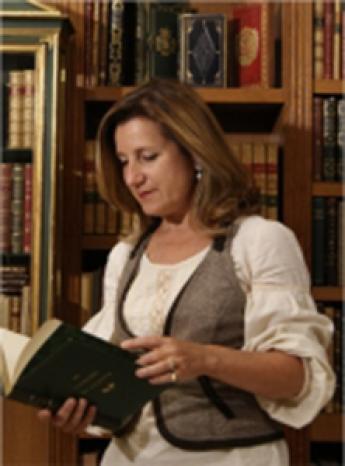News & Updates Syndicat National de la Librairie Ancienne et Moderne Anne Lamort Livres anciens
Paris 2014 - About SLAM

The Syndicat de la Librairie Ancienne et Moderne, a hundred years young
By Anne Lamort (President of SLAM)
The Syndicat de la Librairie Ancienne et Moderne (SLAM) was founded in 1914. Its long history shows that the field of bookselling was quick to adopt a collective vision of its role in transmitting written heritage. Promoting and even defending antiquarian books and the reading thereof requires the combined efforts of the numerous players in the field of bookselling, each specializing in a given field but all contributing to achieving the same objective.
In 1914 a number of eminent booksellers had already envisaged creating an association with the aim of facilitating the circulation of books and sharing ideas on book collecting. At a time when red tape and the plethora of regulations had not yet reached the pinnacle of modern refinement, booksellers were in no way driven by the defence of particular interests. Even today, the relationships between antiquarian booksellers and the administration occupy only a very small part of the work of the SLAM's executives. However, they must constantly train their members with regard to changes in the regulations or jurisprudence.
During the Great War, as in many specialist fields, the trade of antiquarian books was put on hold until the Armistice and the first President of the association, Edgar Rahir, remained in office for 7 years instead of the 3 years initially scheduled. He was assisted by advisers such as Auguste Blaizot, Georges Chrétien and Léon Carteret, names which are still familiar today to anyone involved in the field of book collecting. The first tangible project at the end of the war was to create a journal, the Bouquiniste français, intended as a forum for discussion between booksellers and with amateurs who could submit questions or research. Gradually, the communication policy became more elaborate. The policy included the foundation of an International League of Antiquarian Booksellers in Copenhagen in 1948 by ten countries (including France) to consolidate the reconciliation of the peoples, the creation and organization of an international fair in the 1980s - initially at the Conciergerie in Paris, then at the Mutualité and since 2007 at the Grand Palais -, regular training courses for bibliophiles, and the publication of a guide for novices to the field in 2013.
The French association has always played a key role within the International League of Antiquarian Booksellers (ILAB) due to the specific bibliophile culture in our country. Three memorable conferences were held in Paris in 1950, 1961 and 1988. We are once again proud to be hosting the elite of international book selling in 2014 for three days of extraordinary visits organized at the Arsenal and the François Mitterrand Library, the Château de Chantilly, the Mazarine Library and the Petit-Palais in private exhibitions bearing witness to the rich diversity of our national written heritage.
The SLAM also contributes to maintaining strict ethical rules of the profession in a market poisoned by illegal trade and threatened by speculation. It provides for dialogue between administrations, private individuals and professionals. A watchdog body in liaison with the authorities alerts the market and the public authorities in the event of fraud committed by individuals or organized groups while an ethics committee ensures compliance with the rules of the trade.
In the space of one century, 28 booksellers have held the reins of the association through both difficult periods and more successful times. Term after term, teams of volunteers - supported by a general delegate - seamlessly hand over the torch of fostering the public's taste for beautiful books and manuscripts, supporting bibliophiles in their quests and expressing a penchant which many keep to themselves as if it were shameful or inaccessible to others.
At present, the SLAM boasts 250 members, a figure which has remained stable for decades, and its activity relies entirely on the contributions of its members without any other support, either public or private.
